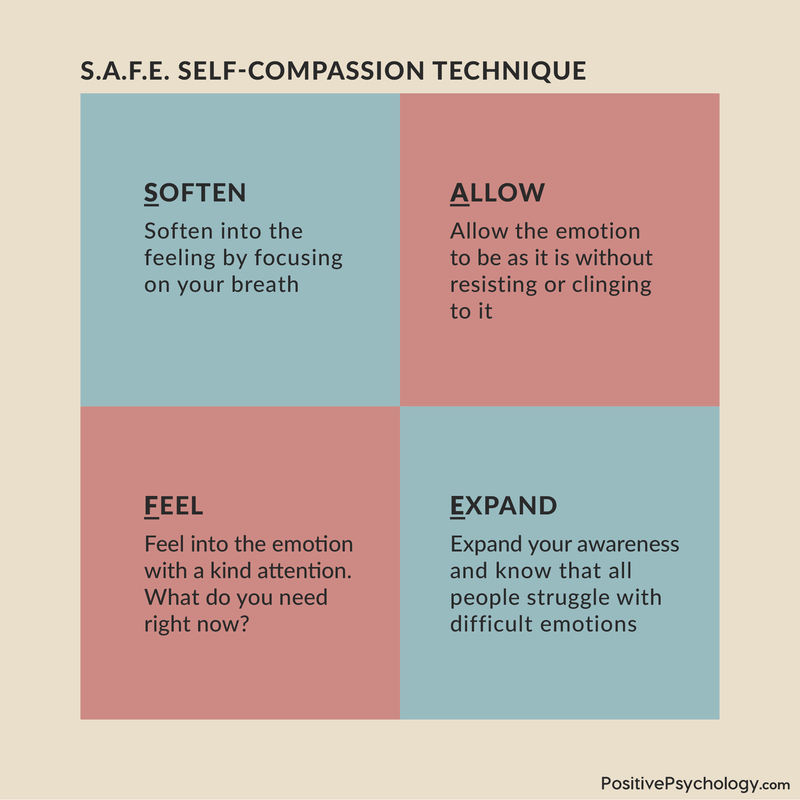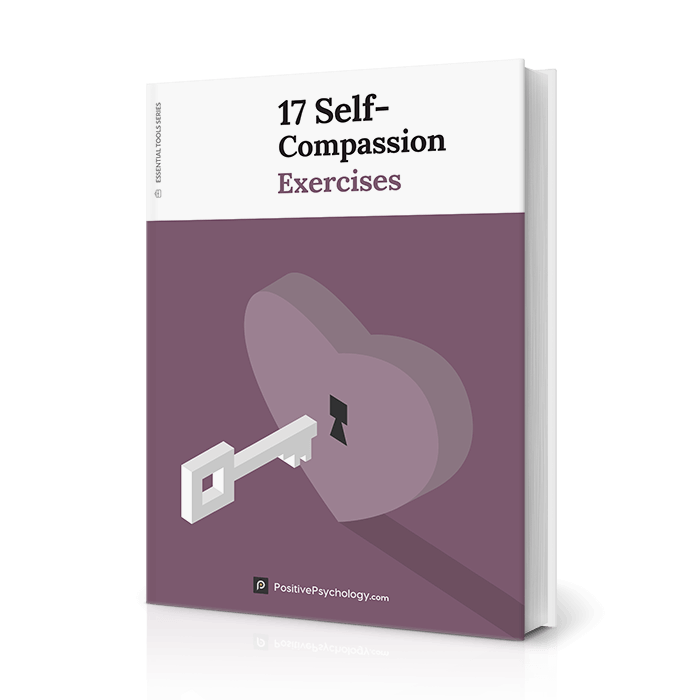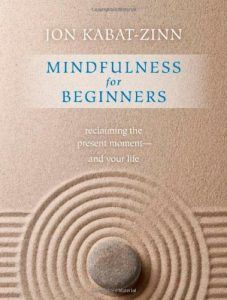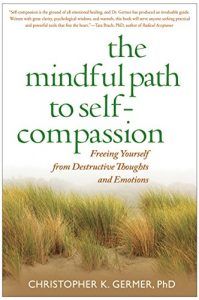What is Mindful Self-Compassion?
Mindful Self-Compassion (MSC) is the process of combining the skills developed through mindfulness with the emotional practice of self-compassion. While on first glance, the two might seem highly correlated, there is a distinction to be made. To really understand how the two work together, it’s good to have a definition of each concept.
Definition of Mindfulness
According to the American Psychological Association (APA, 2012), mindfulness is:
“A moment-to-moment awareness of one’s experience without judgment. In this sense, mindfulness is a state and not a trait. While it might be promoted by certain practices or activities, such as meditation, it is not equivalent to or synonymous with them.”
More popular definitions of mindfulness come from the founder of the Mindfulness-Based Stress Reduction program, Jon Kabat-Zinn, who advocates for mindfulness as a process of awareness for the present moment, and exploration of emotions and feelings without judgment.
Definition of Self-Compassion
Most of us find it easy to demonstrate compassion for a friend or loved one when they’re experiencing a difficult time in life. But when we experience difficulties ourselves, we’re less able to apply the same compassion we would show others to the self. We often become overly critical and judgmental, thinking destructive internal thoughts about who we are and how we behave.
A great definition for self-compassion comes from Chris Germer, co-founder of the Mindful Self-Compassion Center:
“Self-compassion involves the capacity to comfort and soothe ourselves, and to motivate ourselves with encouragement, when we suffer, fail, or feel inadequate. Self-compassion is learned in part by connecting with our innate compassion for others, and self-compassion also helps to grow and sustain our compassion for others.”
So, self-compassion is about reflecting on how you can turn the concept of compassion inwards, to support your own emotional development and acceptance.
Mindfulness generally requires us to be able to pay attention to any experience or emotive feeling – positive, negative or neutral – with acceptance and without attaching constructs. Self-compassion is generally more embedded in developing an understanding and acceptance of solely negative experiences or emotions.
Mindfulness within self-compassion is about using mindfulness in a more targeted way, to support emotional development with overcoming feelings of personal suffering (Germer, 2009).
Mindful Self-Compassion sees us taking both of these ideas and combining them, so we’re using the sense of awareness and presence developed with mindfulness, and applying it to support our emotional development for self-compassion (Neff & Germer, 2012).
A Look at the Research
The research surrounding Mindful Self-Compassion still tends to fall into two camps: studies looking at self-compassion and studies looking at mindfulness. However, more research is beginning to emerge specifically focused on connecting the two, and on Mindful Self-Compassion as its own concept.
Below is an overview of some of the key studies in each of the three areas:
Research on Self-Compassion
Psychological studies on self-compassion have revealed a huge range of benefits for those who indicate a strong disposition towards self-compassion, including better acceptance for negative experiences and the ability to move past difficult emotions (Leary et al, 2007).
Other key findings include:
- Neff (2012) conducted a review of the research to date on self-compassion and found that self-compassion is consistently linked to predicting lower levels of anxiety and depression.
- Individuals with a higher sense of self-compassion (self-rated) were found to have decreased levels of cortisol (the stress hormone), which was associated with a greater ability to gain emotional control and self-soothe when stressed (Rockliff et al, 2008).
- Self-compassion has been associated with a range of positive psychological strengths including optimism, curiosity, initiative, and emotional intelligence (Heffernan et al, 2010).
- Neff & Beretvas (2012) found that individuals with a higher sense of self-compassion had improved relationship functioning, and reported higher empathetic tendencies, altruism and forgiveness for others in their close relationships (Neff & Pommier, 2012).
- Strong self-compassion has also been associated with positive health behaviors including cutting down on smoking (Kelly et al, 2009), exercising and dieting (Magnus, Kowalski & McHugh, 2010) and seeking appropriate medical attention (Terry & Leary, 2011).
Research on Mindfulness
Mindfulness has been identified as one crucial way to improve compassion for others and the self. It has also been identified as having a wide range of positive benefits for emotional, mental and physical health (Kidwell & Hasford, 2014, Remmers, Topolinski, & Koole, 2016 and Garland & Howard, 2013).
Key research in the area of mindfulness include:
- Research has examined the effect of mindfulness on the physical development of the brain. Lutz, Dunne & Davidson (2008) focused their research on how mindfulness affects the amygdala – the area of the brain primarily responsible for emotions – and found that during mindfulness exercises, this part of the brain was less active. Further research by Goldin & Gross (2010) found that mindfulness generated more activity in the hippocampus – the area of the brain primarily associated with memory.
- Further research exploring how the brain responds to mindfulness found that the prefrontal cortex – the area responsible for impulse control – became more active during mindful practice (Chiesa & Serretti, 2010). This suggests that mindfulness can help us develop greater control over our impulses.
- Carson et al. (2004) explored how mindfulness impacts our personal relationships and found that participants who practiced mindfulness regularly reported higher relationship satisfaction, feeling ‘closer’ to their partner and overall healthier relationship management.
The most popular training program, and area of research study, in mindfulness, is the Mindfulness-Based Stress Reduction program (MBSR), developed by Jon Kabat-Zinn (Kabat-Zinn, 1982). It’s effective in the treatment of depression and anxiety has been well documented (Segal, Teasdale, & Williams, 2002).
A variant of the MBSR is the Mindfulness-Based Cognitive Therapy program, which was developed for clinical use. Meta-analytic reviews of both programs have consistently found that they lead to both psychological and physiological improvements for participants (Chiesa & Serretti, 2009; and Hofmann, Sawyer, Witt, & Oh, 2010).
Research Connecting Mindfulness and Self-Compassion
As the research has overwhelmingly found positive outcomes for those with strong self-compassion, further research has sought to find ways to help support others build their own self-compassion or enhance their self-compassion. A strong body of research now exists that suggests participation in both the MBSR and the MBCT programs also increases self-compassion (Lee & Bang, 2010, Rimes & Wingrove, 2011, Shapiro, and Brown, & Biegel, 2007).
Key studies connecting mindfulness and self-compassion include:
- Beddoe & Murphy (2004) found that nurses who participated in the MBSR program reported that their mindfulness practice helped them to develop more compassion and empathy for the patients, and also helped their own self-compassion so they didn’t take on the negative emotions of their patients.
- Shapiro et al. (2005) also found that health care professionals who completed the MBSR program reported an increase in feelings of self-compassion and reduced stress.
- Kuyken et al. (2010) found that depressed participants who engaged in the MBCT program reported increased feelings of self-compassion. Their study also found that it was the greater sense of self-compassion that participants attributed to a reduced relapse into depressive episodes.
- After developing the Mindful Self-Compassion program, Neff and Germer (2012) conducted a pilot study to explore the impact on self-compassion. From two control studies, they found that participants reported significant self-compassion gains following the program, which were maintained at both 6 months and 1-year follow-ups.
 When we talk about mindfulness, there are a number of thoughts that come to mind.
When we talk about mindfulness, there are a number of thoughts that come to mind.












What our readers think
I did not finish reading but I definitely know if I do the work. I can benefit, it seems to make sense yet if I want success at loving myself as much as possible I will need effort! So, thank you for publishing this article and it’s workbooks and meditations. Sincerely Brian S.
This is a great article. It offers such good explanation and ideas of what you might try to develop more self compassion. thank you !
Loved your article and it is motivating me to add this therapy to my studies to improve my life coaching.